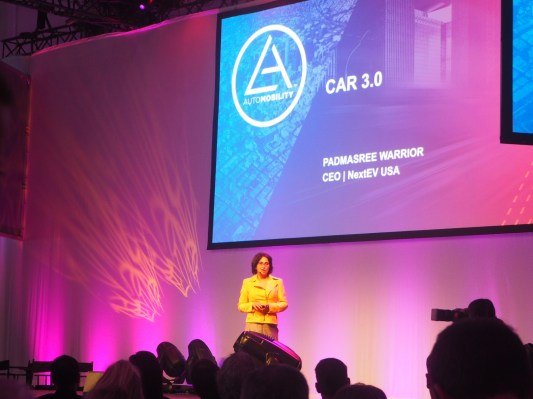Padmasree Warrior, CEO of NextEV, took the stage at the 2016 Los Angeles Auto Show to make a case for car 3.0. Noting the car of the future is likely to be electric and connected is not radical, but Warrior’s assertion that individual ownership of cars is not going to completely go away is less commonly heard at tech and auto events anymore.
The cutting edge of automotive technology and predictions is leaning toward the shared economy overtaking personal ownership of vehicles in the near future. Large manufacturers like Ford are preparing themselves for it, as are newer companies like Uber, Lyft, ReachNow, Car2Go and many others.
But as Warrior pointed out, “Mobility is a symbol of freedom.” Americans now spend 30 percent of their income on owning cars, and in India and China, households spend more than 100 percent of their income on cars. It’s often the first thing people buy when they get a job, she said, because “car ownership is aspirational.”
NextEV asked potential customers what premium meant to them in this future car. It didn’t mean leather seats or more buttons on the center console; the company found that premium meant getting back their time.
In addition to the environmental benefits of driving an emissions-free electric car in a large city, the car will learn your normal routine, your favorite settings and your most frequent errands. It will take over what tasks it can (someday, possibly all of them), freeing you to think about or do other things. Many cars and navigation systems can already save time during the commute wherever possible; Warrior says they will only get better at it without merely replicating apps on our smartphones.
“Car 3.0 will be the smartest device you own in the next few years,” Warrior predicted. “[It] will be a robot that looks like a high-performance car.”
